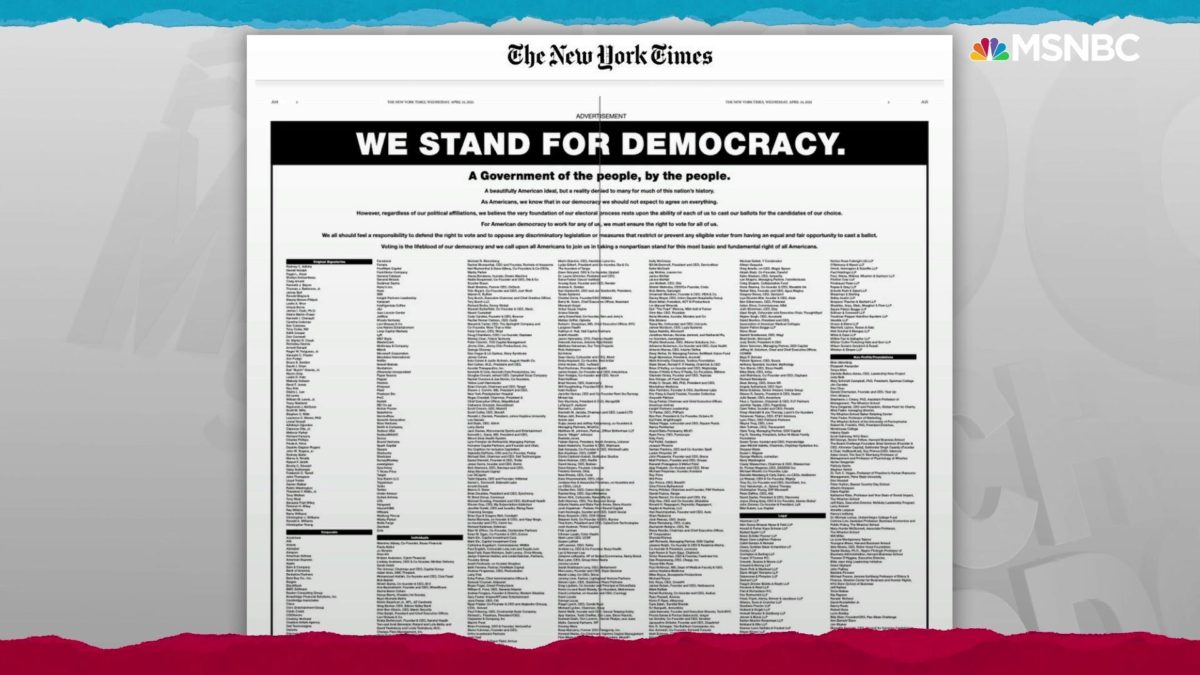Here’s the open letter, under the “We Stand for Democracy” title. As detailed on Popular Information, here’s the most notable section:
We all should feel a responsibility to defend the right to vote and to oppose any discriminatory legislation or measures that restrict or prevent any eligible voter from having an equal and fair opportunity to cast a ballot.
Voting is the lifeblood of our democracy and we call upon all Americans to join us in taking a nonpartisan stand for this most basic and fundamental right of all Americans.
Sounds nice, right? Right. Here’s the issue:
The statement does not address specific election legislation in states, among them Texas, Arizona and Michigan, and Mr. Chenault said there was no expectation for companies to oppose individual bills.
“We are not being prescriptive,” he said. “There is no one answer.”
That statement is from the CEO of American Express, who probably squeezed in his “democracy” interview between six different earnings calls and revenue plays debriefs.
The letter intentionally does not define what it is that these businesses support or oppose, which debilitates the effort. It also does not commit the corporations to any form of meaningful action. These corporations have collectively donated millions to the politicians pushing voter suppression legislation across the country. No company has committed to ending its support of politicians seeking to make it harder to vote.
So it’s largely toothless, like the CEO pledge of last summer.
You need to remember and understand one thing above all: corporations are in the game to make money. Their executives are definitely in the game to make money. This stuff — talking about voting, talking about social justice — is important for brand, and that matters. But it’s absolutely not a priority for them, and whether a low-wage black worker can vote in Georgia at 7pm on a Tuesday night in two years is not tied to their bonus or how the Board evaluates them. So they make sweeping, flowery proclamations where no one has to truly stand for, support, or decry anything specific, and then we all nod and say “Ooooh, corporations being activist!” and resume our Netflix-watching lives. In three years, when little has changed and political theater is back to rancor level (2024 election!), we’ll wonder “Hey, what happened? I thought corporations cared about this stuff.”
This is largely toothless and performative. As you were.
